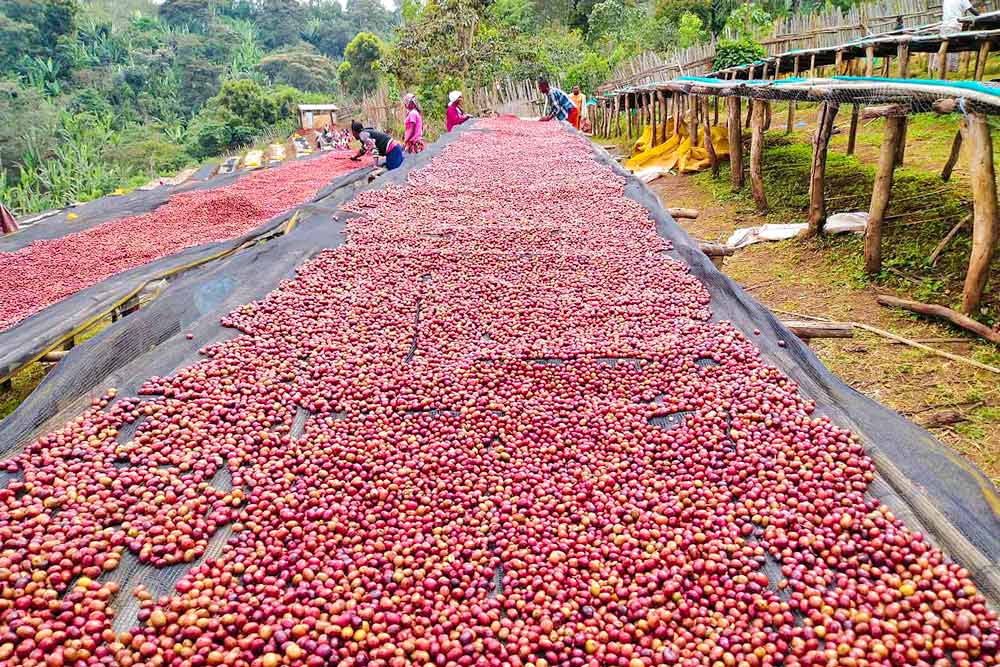


More amazing stuff to know.

Produced by smallholder farmers.
This delicious Ethiopian coffee is produced by smallholder farmers located around Halo Beriti kebele and nearby villages.
Smallholder farmers plant their coffees often on land parcels as little as 1/8 hectare on average, producing 1.5 to 6 bags of coffee. Talk about making the most of every inch!
After harvest, these smallholders bring their coffee to the local Halo Beriti washing station. That’s where the magic happens. Since the coffee from all these small farms gets mixed together, it’s traceable only to the washing station. The coffee is aggregated, sorted, and then processed at the washing station.

Washing stations in Ethiopia.
Did you know that about 90% of Ethiopia's coffee comes from smallholder farmers? These hardworking folks deliver their freshly harvested cherries to local, privately owned washing stations. Now, picture this: washing stations are like coffee spas, where the beans either sunbathe on drying beds (for natural-processed coffees) or go through a relaxing wash and dry cycle (for washed coffees).
Many washing station owners also hold an export license, which allows them to sell their coffee directly on the international market—provided they have a contract, of course. Talk about taking their beans global! This particular coffee can be traced back to the Arsosola washing station. So, next time you sip your Ethiopian brew, remember the journey it took from a small farm to your cup. Cheers!







